Internet: Can goats be the new dogs, please??
New research out of the UK highlights goats' cognitive abilities and the internet collectively freaks out at the thought of goats becoming man's brand new bestie.
The internet loves cats, no doubt, but it's also obsessed with goats. There are goat memes galore, and Twitter and Instagram accounts devoted entirely to goats, with nearly 50,000 followers apiece.
So when researchers from the Queen Mary University of London published a study in Biology Letters that detailed how some goats' human-directed behavior was strikingly similar to dogs, the internet lost its mind (evidenced here, here, here, here, here, here and here).
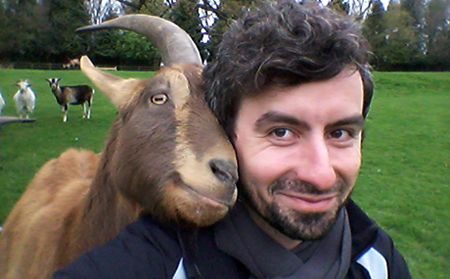
Researcher Christian Nawroth, PhD, and one of the study participants. The study tasked farm goats with removing a lid from a box to receive a treat. Then researchers made the reward inaccessible, in order to study the goats' gazing behavior in the face of an "unsolvable problem."
During that portion of the test, the goats were paired with a forward-facing and away-facing person. Researchers found that the goats gazed toward the forward-facing person earlier and for a longer period of time when they realized they couldn't open the box. Watch the study take place, below:
“Goats gaze at humans in the same way as dogs do when asking for a treat that is out of reach,” says Christian Nawroth, PhD, one of the study's authors.
“Our results provide strong evidence for complex communication directed at humans in a species that was domesticated primarily for agricultural production, and show similarities with animals bred to become pets or working animals, such as dogs and horses," he says.
Pet goats for everybody! (Not so fast ...)
“Dogs evolved to follow our gaze because we needed them to be good hunting dogs,” Jenna Kiddie, Phd, a professor of animal behavior and welfare at Anglia Ruskin University, told The Guardian. “We've never had any social need from goats apart from their meat and milk, so this research really throws that into the water.”
But Dr. Nawroth cautions that although his findings will likely have an impact on goats owned as pets, he and his colleagues firmly disagree with the media notion that "goats are the new dogs."
He cites two reasons: "First, dogs are in many ways more adapted to interact with humans in general, and second, goats have different motivations and desires than dogs. They need large outdoor areas and companions."
Dr. Nawroth does envision a future where goats will become more popular as pets, but says that the research conducted on goats will probably have a relatively small impact on pet owners' choices.
Sigh. Well, at least we've always goat the internet. (Sorry, that pun was baaaaaad.)
For the study abstract, go here. To waste a significant portion of your day looking at THE. MOST. ADORABLE pictures of the study participants, click through to the following pages.
And now, the goats, in all their glory.
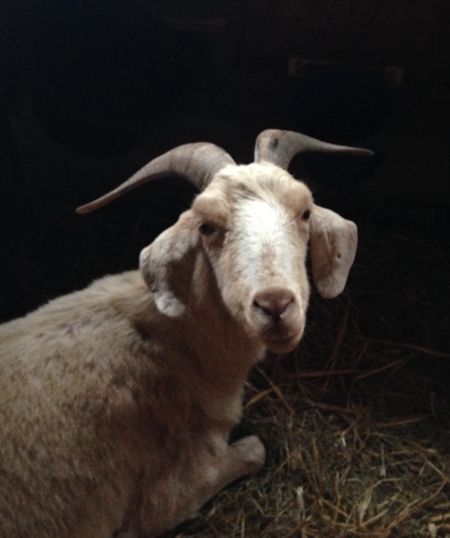
You startled me.
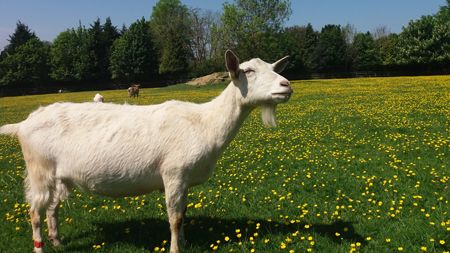
Just hanging in this gorg meadow.
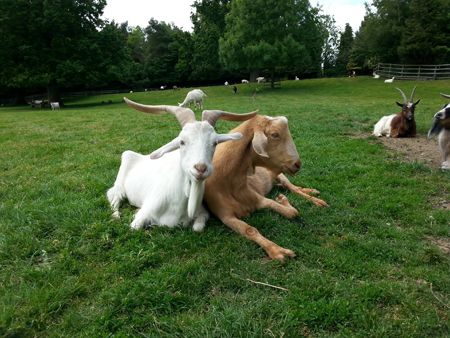
I've goat friends.
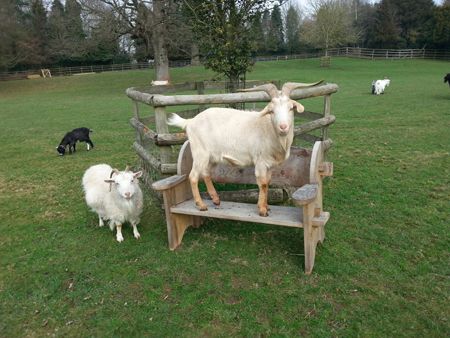
We do what we want.
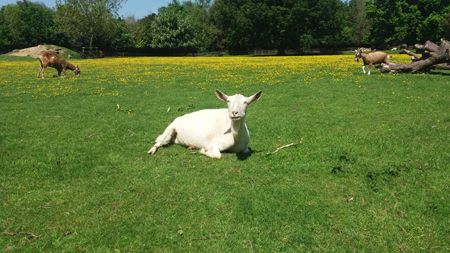
Sometimes we chill.
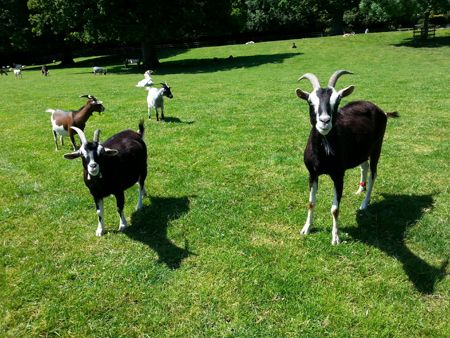
Other times we're more active.
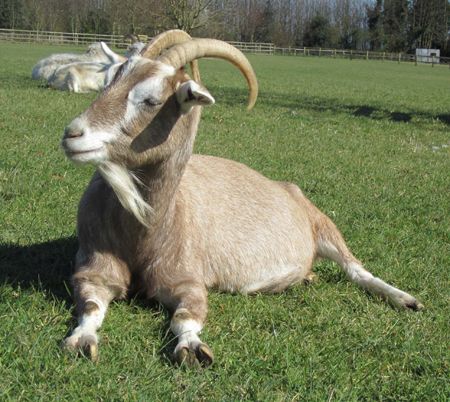
Sometimes we just sit and contemplate life.
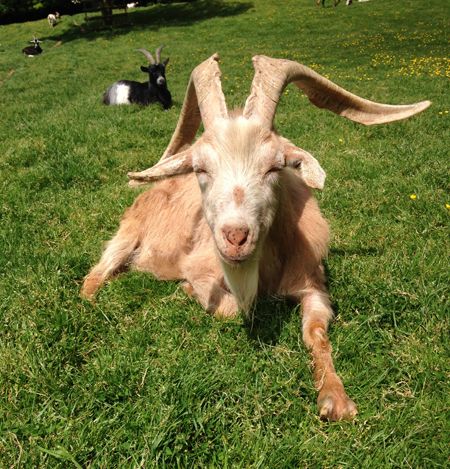
Goats 4 lyfe.